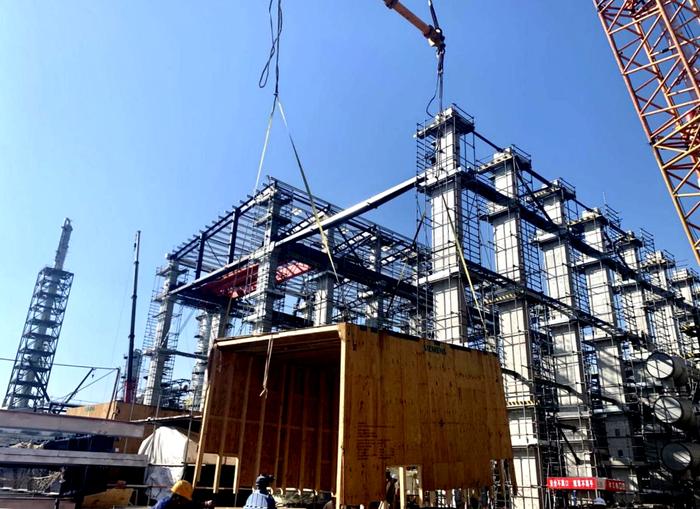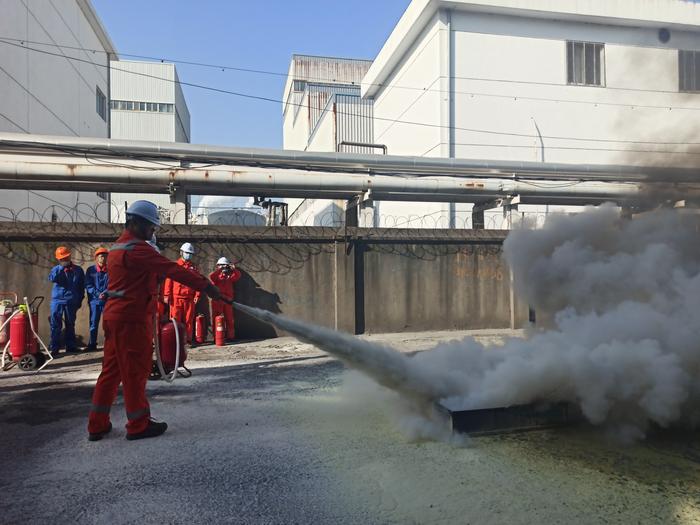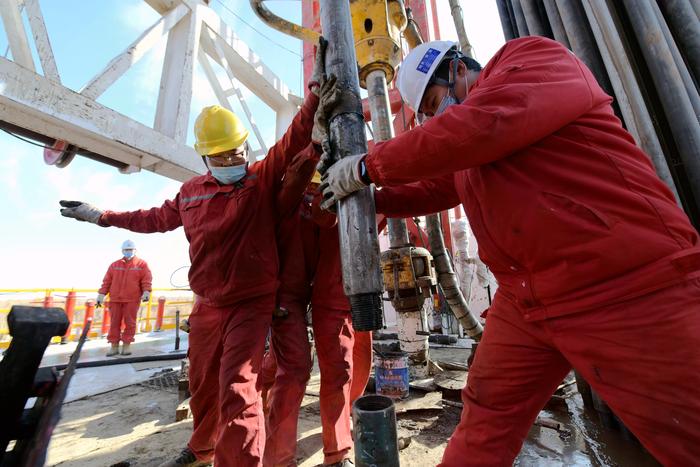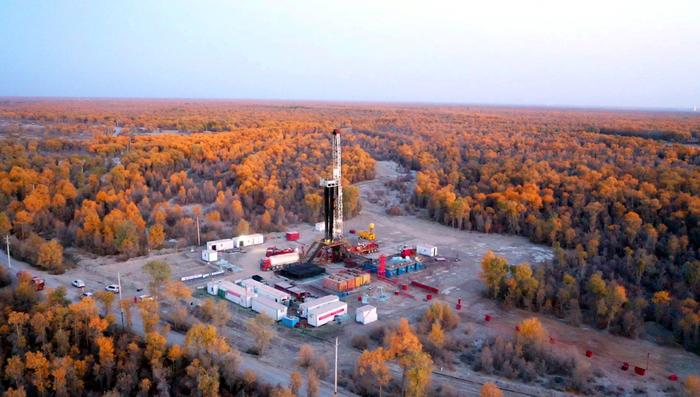|
| 2020-11-17 来源: 中国石化新闻网 |
| 石化新闻 |
中国石化新闻网讯 据11月14日Energy Mix Report报道,据几位代表表示,欧佩克(OPEC)及其盟国之间的谈判重点是将明年计划的石油产量增产推迟三到六个月。 由23个成员国组成的欧佩克+组织的领导人沙特阿拉伯和俄罗斯已经公开表示,由于新冠肺炎疫情冲击了燃料需求,他们正在考虑明年1月是否放松减产。 俄罗斯和欧佩克甚至都提到了进一步削减产量的选择。一名代表指出,这一想法到目前为止还没有得到其他成员国的广泛支持。 由于谈判是私下进行的,代表们要求不具名,他们表示,在成员国开会做出最终决定不到三周的时间里,该联盟正日益关注将目前的减产维持到2021年初。该联盟目前的减产产量为每天770万桶左右,占全球产量的8%。 在疫苗有惊喜的消息,一名代表称,辉瑞公司(Pfizer Inc.)本周宣布的疫苗可能会在2021年年中重振燃料需求,从而减少进一步削减供应的必要性。周三,伦敦市场原油价格上涨至每桶45美元以上的10周高点。 然而,另一位代表称,为数十亿人接种疫苗面临巨大的后勤挑战,意味着这不会在未来六个月内实质性地改变石油市场状况。因此,这一进展并不能保证石油生产商在明年1月份能像原计划那样打开供应开关。 欧佩克还必须应对那些免于减产的成员国恢复供应的问题。 此外,沙特阿拉伯能源大臣阿卜杜勒阿齐兹·本·萨勒曼王子周一表示,欧佩克+可以在必要时调整减产协议。 今年早些时候,该组织就已经这样做了,将7月份日产200万桶的增产计划推迟到8月份。欧佩克曾计划在明年1月份恢复类似的产量,预期全球经济复苏将刺激燃料使用。 但病毒感染的激增引发了新的封锁,削弱了对运输燃料的需求。欧佩克总部位于维也纳的秘书处发布的月度报告下调了该组织至2021年底前几乎每个季度的全球原油需求量预测。并警告称,明年新冠肺炎疫情对消费的影响将“持续”。 自今年4月欧佩克+达成目前的产量协议以来,沙特和俄罗斯一直在试图提高预期。他们有时会选择比市场预期更激进的措施,不过并不会不让外界知道这些措施,以最大限度地提高对价格的影响。 俄罗斯10月22日表示:“如果有必要,我们可以就进一步削减开支做出决定。”但他补充称,没有立即这样做的必要。阿尔及利亚能源部长阿塔尔(Abdelmajid Attar)周三再次暗示了这种可能性。沙特阿拉伯王子阿卜杜勒阿齐兹(Prince Abdulaziz)已多次警告,卖空者做空是不明智的。 在部长们于11月30日至12月1日举行网络会议之前,一切都无法确定。最近对欧佩克承诺感到不满的阿拉伯联合酋长国周一强调,要修改协议,达成共识是必要的。能源部长Suhail Al Mazrouei在Adipec在线会议上表示:"我们必须一致确信调整是必要的。" 王佳晶 摘译自 Energy Mix Report 原文如下: OPEC+ explores a 3 to 6 month delay on oil output increases Talks between OPEC and its allies are zeroing in on a delay to next year’s planned oil-output increase of three to six months, according to several delegates. Saudi Arabia and Russia, leaders of the 23-nation coalition, have already indicated publicly that they are thinking twice about easing production cuts in January as the resurgent pandemic hits fuel demand. The presidents of both Russia and the Organization of Petroleum Exporting Countries have even mentioned the option of cutting production deeper. This idea hasn’t garnered widespread support so far among other members, one delegate said. Less than three weeks before members meet to take a final decision, the alliance is instead increasingly focused on maintaining the current cutbacks into early 2021, the delegates said, asking not to be identified as the talks are private. The alliance is keeping about 7.7 million barrels a day off-line right now, or 8% of global output. Vaccine Surprise The vaccine announced this week by Pfizer Inc. could revive fuel demand in mid-2021, allaying the need to pare supply further, one delegate said. Oil prices rallied to a 10-week high above $45 a barrel in London on Wednesday in response to the scientific breakthrough. However, the immense logistical challenges of deploying a vaccine to billions of people mean it won’t materially alter oil-market conditions over the next six months, a delegate said. So the development doesn’t guarantee that producers can open the taps in January as originally planned. OPEC is also having to contend with the return of supply from members that are exempt from cutting production. After a truce in its civil war, Libya has revived output to the highest level in almost a year. Traders expect Iran will resume exports in 2021 after President-Elect Joe Biden reactivates an accord on the country’s nuclear program. Deal Tweaks Saudi Arabian Energy Minister Prince Abdulaziz bin Salman said on Monday that OPEC and its partners can “tweak this agreement” as necessary. It already did so earlier this year, postponing a 2 million barrel-a-day output hike from July to August. The cartel had aimed to restore a similar amount of production in January, in expectation that a rebounding global economy would stimulate fuel use. But a surge of infections is triggering new lockdowns, sapping demand for transport fuels and making those hopes less feasible. The monthly report from OPEC’s Vienna-based secretariat cut projections for the amount of crude the world will need from the cartel for almost every quarter to the end of 2021. It warned the pandemic’s effects on consumption will “linger” next year. Since OPEC+ forged the current production agreement back in April, Riyadh and Moscow have consistently tried to shape expectations. They have, on occasion, opted for more aggressive measures than the market was expecting, keeping the moves under wraps to maximize the impact on prices. Russia said on Oct. 22 that “if necessary we can take a decision on further cuts,” while adding that he saw no immediate need to do so. Algerian Energy Minister Abdelmajid Attar alluded to the possibility again on Wednesday. Saudi Arabia’s Prince Abdulaziz has warned repeatedly that it would be unwise for short sellers to bet against him. Nothing is certain until ministers hold an online meeting from Nov. 30 to Dec. 1. The United Arab Emirates, which has recently chafed at its OPEC commitments, emphasized on Monday that consensus is necessary for the deal to be amended. “We have to be all convinced that tweak is required,” Energy Minister Suhail Al Mazrouei said at the online Adipec conference. |








